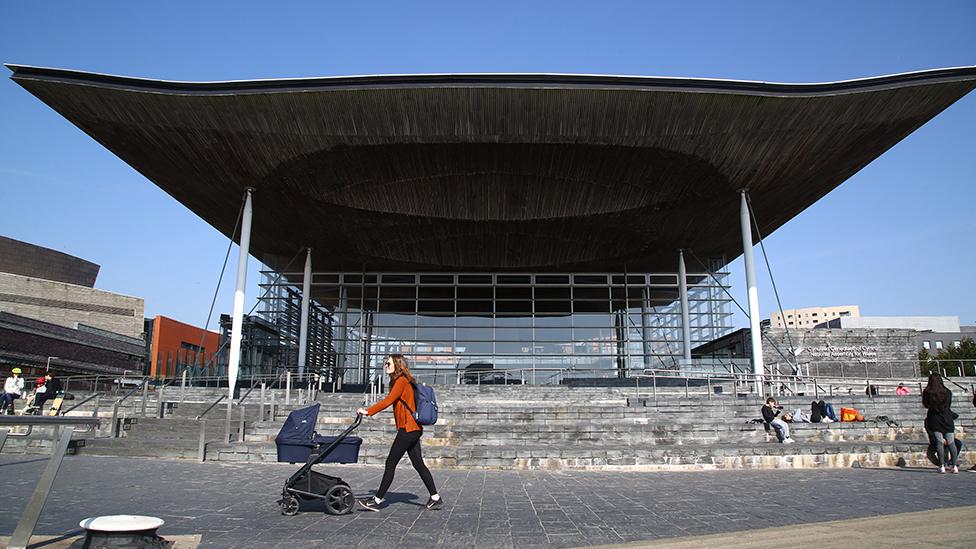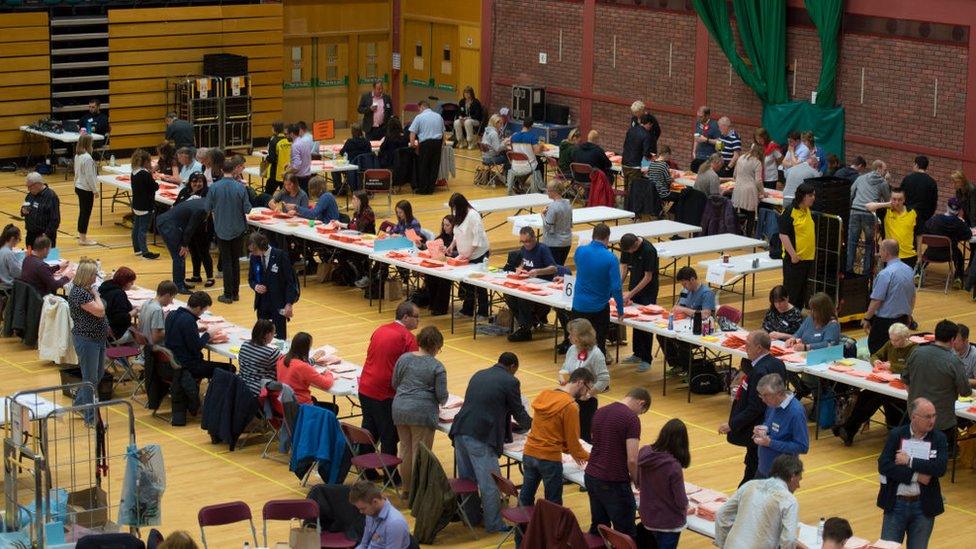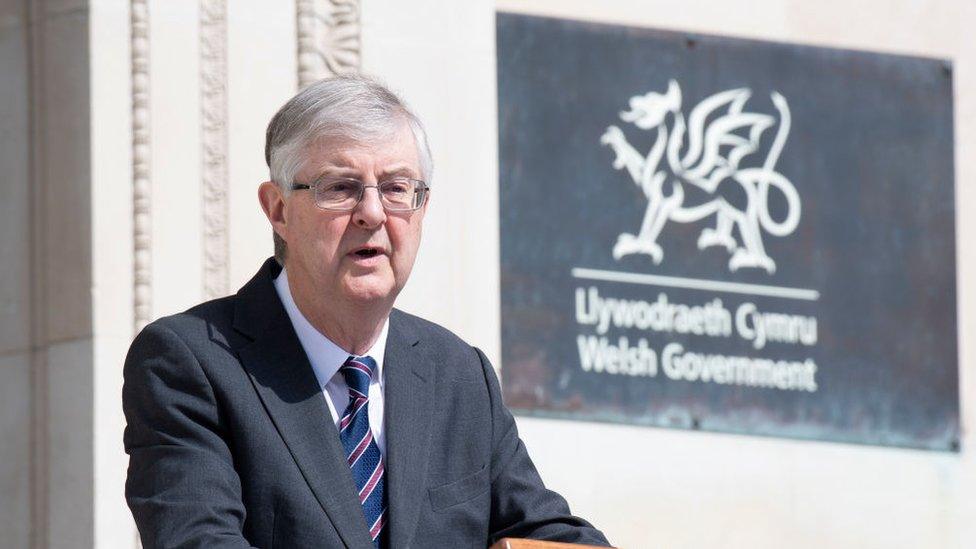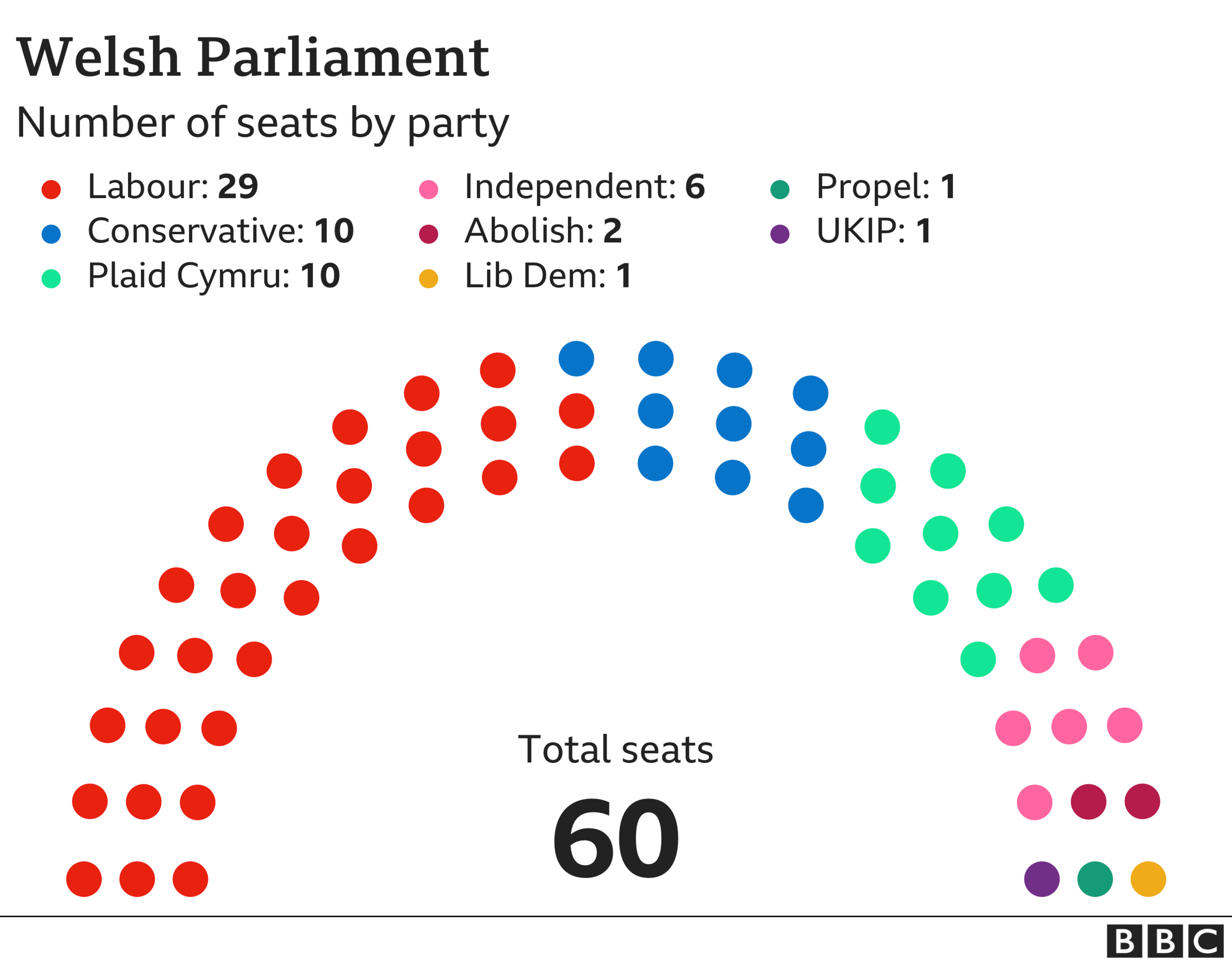Wales elections 2021: A simple guide
- Published

The Welsh Parliament is based in the Senedd building in Cardiff
Welsh voters have gone to the polls to elect members of the Welsh Parliament, also known as Senedd Cymru.
The election will decide who forms the Welsh government, which runs many major services affecting people's day-to-day lives.
What is the Welsh government?
The Welsh government was set up in 1999, following a referendum.
It was created to give more power over key issues to the Welsh people.
It runs health, education, local government, transport, housing, economic development, social services, culture, Welsh language policy, agriculture and other public services.
It is in charge of much of the Covid-19 response in Wales, and also controls some taxes.

WALES ALERTS: Get extra updates on BBC election coverage

Members of the Senedd vote on laws, pass the Welsh government's plans to spend money on public services and keep an eye on what ministers are doing.
The Senedd is based in Cardiff and is separate from the House of Commons in London, which makes laws covering the whole of the UK.
It was known as the National Assembly for Wales until last May.
How does the election work?
There are 60 Members of the Senedd (MSs), 40 of whom represent individual constituencies (areas).
Another 20 represent the five regions of Wales:
South Wales East
South Wales Central
South Wales West
Mid and West Wales
North Wales
Each region has four MSs.
Voters get two ballots - one for a person to be their constituency MS, and the other for a party for their region.
How will voting work during coronavirus?
It will be different, with plastic screens and hand sanitiser.
People are being asked to take their own pen or pencil to fill in ballots. Those who might be vulnerable to coronavirus or are otherwise concerned can apply for a postal vote.
Proxy votes (where you nominate someone else to cast your vote) are available. Emergency proxy votes will be available on the day up until 17:00 BST if voters need to isolate.

WHO SHOULD I VOTE FOR?
Wales election 2021: Compare what the parties are promising to do on the big issues with our election policy guide.


Counts are likely to be more socially-distanced than this general election count in Cardiff in 2017
Who can vote?
There are about 2.3 million voters in Wales.
From this year, anyone over the age of 16 can vote, as well as an estimated 33,000 foreign nationals who did not previously have the vote.
Voters must be living in Wales and registered to vote. They can be a British, Irish or Commonwealth national, an EU citizen or a foreign national permitted to be in the UK.
They can register to vote online, and must have done so by 19 April.

Mark Drakeford has been first minister since 2018
When will we know the results?
Counting will start the next day - not overnight, because of the pandemic.
In constituencies, the candidate with the most votes wins. Regional seats are picked using a system which aims to elect MSs according to how many votes their party picked up in that region.
Once the results are in there is the question of who runs the next government.
If a party wins more than 30 seats, it will be able to form a government without help from the opposition.
If it does not win more than 30 seats, the largest party may try to govern anyway. But it might need help from others - either through occasional deals or a more formal arrangement, known as a coalition.
Who is currently in power?
The current first minister is Mark Drakeford - the leader of Welsh Labour since 2018.
With 29 seats, Labour was the largest party at the last election in 2016 but did not win enough to govern without some help from opposition politicians.
They have support from Lib Dem MS Kirsty Williams and former Plaid Cymru Senedd politician Lord Elis-Thomas, who both serve as ministers.

Who are the opposition?
The rival candidates for first minister are Welsh Conservative Senedd leader Andrew RT Davies, and Plaid Cymru leader Adam Price.
Smaller parties are also looking for votes - including the Welsh Liberal Democrats, UKIP, the Abolish the Welsh Assembly Party, Reform, Propel and the Wales Green Party.
Although some of the smaller parties are unlikely to form a government, some could be included in power-sharing if none of the larger parties wins outright.
What are the key issues?
Many will see this year's election as a judgement on the Welsh government's response to Covid-19.
Mark Drakeford has been in charge of Wales' lockdown, taking decisions on what parts of the economy to keep open, or keep closed, and on who legally can and cannot meet.
Parties will also make pledges about how they would run the NHS and other large services like education.
The Welsh government's controversial decision not to build an M4 relief road may be raised on the campaign trail, as well as what parties would do over tax.

POLICY GUIDE: Compare the party policies

